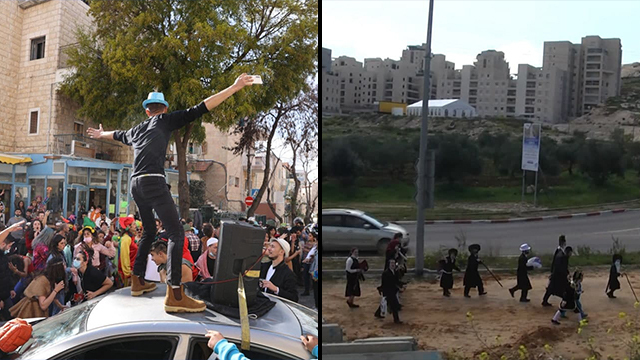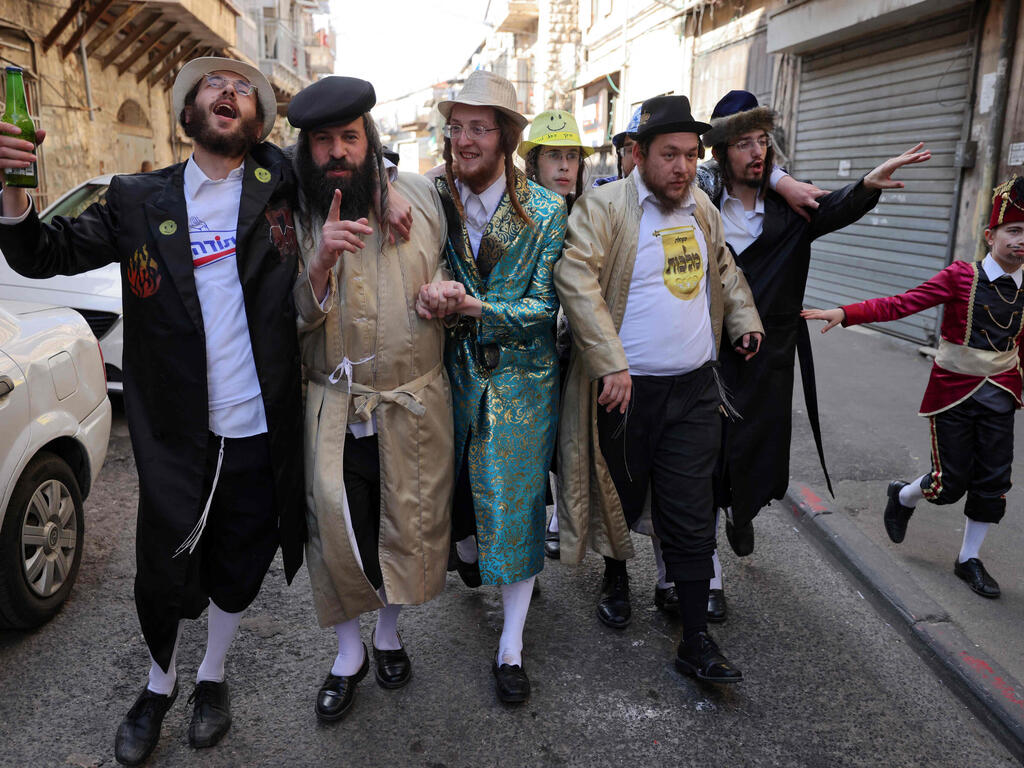Getting your Trinity Audio player ready...
With public and organized group transportation to Jerusalem halted until Sunday night, hundreds of ultra-Orthodox Israelis were spotted walking along the highway leading to the capital, determined to celebrate the final day of Purim holiday.
Israel on Thursday imposed a nighttime curfew and limited public transport, while in Jerusalem is was halted altogether, to stop people from staging mass Purim parties amid the ongoing pandemic. Mass, impromptu parties were still staged in the day time hours across many Israelis cities despite the restrictions.
Ultra-Orthodox sighted walking to Jerusalem
(Video: Beit Shemesh News)
The final day of the holiday is celebrated among the Haredi community with Tisches - mass gatherings of a senior rabbi and his flock.
Police checkpoints were set up at all entrances to Jerusalem on Saturday evening to ensure that no large organized groups arrived in the city. Entry was, however, permitted for private vehicle.
The Transportation Ministry said that the new measures were put in place in order to "prevent expected gatherings for holiday events in Jerusalem as they may become a source of mass coronavirus infection."
2 View gallery


Mass party in Jerusalem's Nachlaot neighborhood and Ultra-Orthodox sighted walking to Jerusalem
(Photo: Gil Yohanan, Photo: Alex Kolomoisky)
Although the nighttime curfew ended on Sunday morning, police still appear to be on alert. The lifting of the measure means that residents could visit another person's home with no fear of a fine, making any police work to find and break up mass gatherings much more difficult.
"We are doing what they did in Tel Aviv," said one young Haredi man, alluding to parties sighted all over the central city during the weekend.
In Jerusalem, meanwhile, Mahne Yehuda Market and Nachlaot neighborhood became the party hotspots, where those participating in impromptu Purim festivities were seen not adhering to social distancing or wearing masks.
2 View gallery


Costumed residents in the hardline ultra-Orthodox neighborhood of Mea She'arim
(Photo: AFP)
Police arrived at both locations and broke up the parties.
In the hardline ultra-Orthodox neighborhood of Mea She'arim, thousands of costumed residents not wearing protective face masks were seen partying, with no police force in sight to enforce restrictions.
"We do not care about your rules, we do what we want," said one resident. "We are a state within a state. We do not recognize the state that has taken the people of Israel and turned them into gentiles. We know what the precautions are, do not worry about us. We can take care of ourselves just fine."




